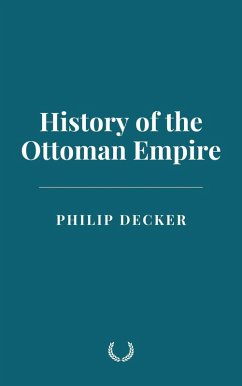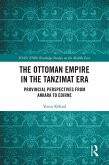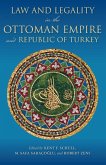The Ottoman Empire, which spanned over six centuries, was one of the most influential empires in world history, profoundly shaping the political, cultural, and social landscapes of Europe, Asia, and Africa. Its eventual collapse in the early 20th century was the result of a combination of internal decay and external pressures, culminating in the profound transformations of the First World War.
This study examines the multifaceted legacy of the Ottoman Empire, exploring the empire's complex religious and social systems, political dynamics, and military prowess, as well as its responses to the challenges of modernization, nationalism, and external intervention. The rise of nationalist movements within the empire's diverse population, coupled with the impact of European imperialism and military defeats, led to the empire's disintegration in 1923.
The analysis covers key events such as the Armenian Genocide, the Balkan Wars, the Turkish War of Independence, and the Treaty of Lausanne, providing a deep insight into the factors that contributed to the empire's demise. Additionally, this work reflects on how the Ottoman Empire's legacy continues to influence the modern political and cultural landscapes of the Middle East, the Balkans, and beyond, highlighting the complex interplay between memory, nationalism, and historical interpretation.
This examination not only seeks to understand the Ottoman Empire's past but also contributes to the ongoing debates surrounding its legacy in contemporary geopolitics and identity formation.
This study examines the multifaceted legacy of the Ottoman Empire, exploring the empire's complex religious and social systems, political dynamics, and military prowess, as well as its responses to the challenges of modernization, nationalism, and external intervention. The rise of nationalist movements within the empire's diverse population, coupled with the impact of European imperialism and military defeats, led to the empire's disintegration in 1923.
The analysis covers key events such as the Armenian Genocide, the Balkan Wars, the Turkish War of Independence, and the Treaty of Lausanne, providing a deep insight into the factors that contributed to the empire's demise. Additionally, this work reflects on how the Ottoman Empire's legacy continues to influence the modern political and cultural landscapes of the Middle East, the Balkans, and beyond, highlighting the complex interplay between memory, nationalism, and historical interpretation.
This examination not only seeks to understand the Ottoman Empire's past but also contributes to the ongoing debates surrounding its legacy in contemporary geopolitics and identity formation.
Dieser Download kann aus rechtlichen Gründen nur mit Rechnungsadresse in A, B, CY, CZ, D, DK, EW, E, FIN, F, GR, H, IRL, I, LT, L, LR, M, NL, PL, P, R, S, SLO, SK ausgeliefert werden.









